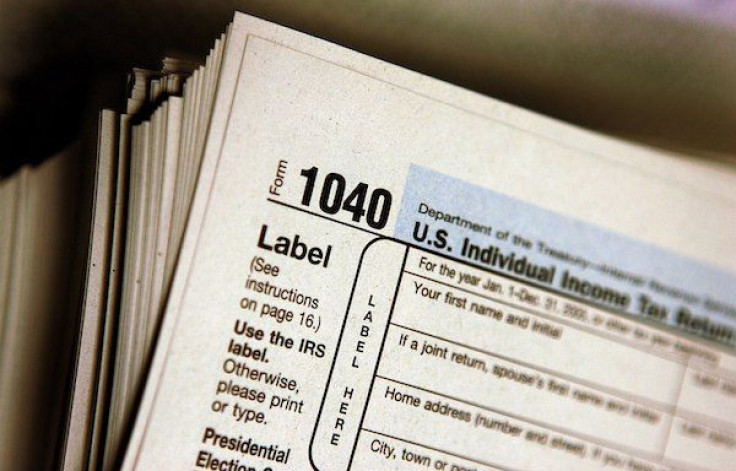4 Smart Tax Moves You Can Make Right Now

Tax season is fast approaching, which means it's time to get ready to deal with everyone's least favorite government agency. While submitting forms to the IRS is never fun, it's still important to take some time leading up to tax season to think about your tax situation. In particular, it's prime time to consider how you can keep your taxes as low as possible while still minimizing your risk of running into problems in an audit.
Not sure where to start in trying to be smart about your taxes? Here are four moves you should make right now so this tax season -- and the next one -- will go easier and will hopefully leave you with a little more money in your pocket.
1. Figure out whether it makes sense to itemize
One of the single most important decisions you'll make when you file taxes is whether you should itemize your deductions or claim the standard deduction. The standard deduction was nearly doubled by tax reform and is going up again in 2019. So, even if you've always itemized in the past, that doesn't necessarily mean you're going to continue doing so in the future.
Itemizing makes sense only if the value of deductions that require you to itemize exceeds the value of the standard deduction. You can claim some deductions, such as for IRA contributions, even if you don't itemize. So consider only the deductions that are restricted to itemizers, such as the deductions for mortgage interest, state and local taxes, medical expenses, and charitable contributions.
If your itemized deductions add up to more than the standard deduction for the tax year when you're filing, make sure to itemize. If they don't, skip the hassle and just claim the standard deduction.
2. Hunt down deductions and credits you're owed
Claiming as many deductions and credits as you can is important to reducing your tax bill, and you don't want to leave any tax breaks on the table. So make certain to claim all the deductions and credits you can, whether you itemize or not. This can include the student loan interest deduction, the child tax credit, credits for energy-efficient improvements for your home, education tax credits for paying tuition, and many more.
If you're not sure what deductions and credits you're entitled to, using tax prep software can help. Many online e-filing programs ask you simple questions in plain language to help you identify ways you can save on taxes. You can also consult with a tax professional. Lower-income people and seniors can get tax help for free, while those who have a more complicated tax situation -- such as small business owners -- will often find it worthwhile to pay an accountant for advice.
3. Contribute to tax-advantaged savings accounts
Did you know you can contribute to an IRA for the prior tax year until April's tax deadline? So in January, February, March, and early April 2019, you can still make an IRA contribution for 2018. That means it's not too late to take advantage of one of the most valuable tax breaks available.
You are allowed to make tax-deductible contributions to an IRA no matter how high your income if neither you nor your spouse has a retirement plan at work. If either of you does, there are income limits for making deductible contributions. If you're eligible to make IRA contributions, make them. There's no reason to give up on free help from the government in saving for your future.
Contributing to an IRA isn't the only way you can lower your taxes and set up your future self for financial security. You should be contributing to a 401(k) if you have access to one at work. If you have a high-deductible health plan and you're eligible, you should contribute to a health savings account. You can also contribute to a flexible spending account if you have access to one through your job.
The more money you can put aside pre-tax to help yourself accomplish financial goals, the lower your tax bill will be and the better off you'll be in the long run.
4. Get organized
Tackling tax season is really tough if you have paperwork everywhere. Not to mention that you put yourself at risk of an audit if you can't find the documents you need to back up deductions and credits you've claimed.
To make sure you don't earn the ire of the IRS -- or miss out on deductions and credits because of missing paperwork -- you should get all your documents together ASAP for filing for the 2018 tax year.
And make a plan to keep tax stuff together throughout the year so you won't have to scramble when it comes time to do your 2019 taxes. This could be as simple as sticking a folder in your desk drawer and making it a point to put relevant receipts -- such as for donations or medical expenses -- in the folder as soon as you receive them.
Tackle these tax moves now to make tax filing a breeze
By taking these four steps, you'll make filing your taxes easier -- and hopefully lower your tax bill. Tax day will be here before you know it, so don't wait to take action and become a tax-filing pro.
This article originally appeared in the Motley Fool.
The Motley Fool has a disclosure policy.











